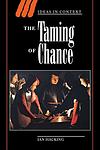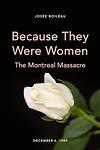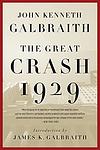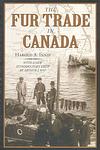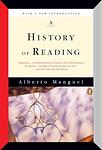The Greatest Roman, Canadian "Nonfiction, History" Books of All Time
Click to learn how this list is calculated.
This list represents a comprehensive and trusted collection of the greatest books. Developed through a specialized algorithm, it brings together 305 'best of' book lists to form a definitive guide to the world's most acclaimed books. For those interested in how these books are chosen, additional details can be found on the rankings page.
Genres
The category of "History" in books refers to the study and interpretation of past events, societies, and cultures. It encompasses a wide range of topics, including political, social, economic, and cultural developments, as well as the lives of individuals and groups who have shaped the course of history. History books can be written from various perspectives and may focus on specific time periods, regions, or themes. They aim to provide readers with a deeper understanding of the past and its impact on the present.
Countries
Date Range
Reading Statistics
Click the button below to see how many of these books you've read!
Download
If you're interested in downloading this list as a CSV file for use in a spreadsheet application, you can easily do so by clicking the button below. Please note that to ensure a manageable file size and faster download, the CSV will include details for only the first 500 books.
Download-
1. Lives of the Caesars by Suetonius
"Lives of the Caesars" is a historical narrative that provides a detailed account of the personal and public lives of the first twelve Roman emperors, from Julius Caesar to Domitian. The author presents a vivid depiction of their character, behavior, appearance, and private lives, as well as their political actions, military exploits, and administrative policies. The book is a valuable source of information about the Roman Empire's early days, offering a unique perspective on the power, corruption, and extravagance of the Roman elite.
The 1325th Greatest Book of All Time -
2. The Great Transformation by Karl Polanyi
The book in question is a seminal work in economic and social history that examines the development and impact of the modern market economy on global societies. It argues that the rise of market capitalism in the 19th century fundamentally transformed social structures and human relationships, with the commodification of land, labor, and money turning them into tradable goods. This transformation led to social dislocation and crises, prompting a counter-movement for social protection and the rise of the welfare state. The author challenges the idea that the market economy is a natural and inevitable form of social organization, instead presenting it as a constructed system with profound effects on the fabric of society.
The 1403rd Greatest Book of All Time -
3. The City of God by Augustine
The book is a philosophical and theological masterpiece, written as a defense of Christianity after the sack of Rome in 410 AD. The author contrasts the earthly city, characterized by pride and love of self to the point of contempt for God, with the heavenly city, characterized by love of God to the point of contempt for self. He argues that though the earthly city may seem dominant in the present age, the heavenly city will ultimately triumph. The book is a profound exploration of history, philosophy, religion, and the human condition.
The 1643rd Greatest Book of All Time -
4. Histories by Cornelius Tacitus
"Histories" is a comprehensive account of the Roman Empire from 69-96 AD, a period marked by significant political turmoil. It provides an in-depth look at the reigns of four emperors: Galba, Otho, Vitellius, and Vespasian, along with the social and political upheavals of the time. The narrative also covers the Jewish rebellion and the burning of the Jerusalem Temple, offering a rich historical context of the period. Despite some gaps in the record, it remains a crucial primary source for understanding this era of Roman history.
The 1803rd Greatest Book of All Time -
5. Germania by Cornelius Tacitus
"Germania" is a historical and ethnographic work that provides a detailed description of the lands, customs, and tribes of the Germanic people in the first century AD. The author, a Roman historian and senator, offers a comprehensive account of the geography, anthropology, social institutions, and military practices of the Germanic tribes, often comparing their culture and values to those of the Romans. The work is considered a valuable source of information about the ancient Germanic tribes, despite its possible biases and inaccuracies.
The 2333rd Greatest Book of All Time -
6. Titi Livi Ab urbe condita libri by Livy
This historical work offers a comprehensive narrative of the history of Rome, from its mythical origins to the reign of the Roman Emperor Augustus. The author chronicles the major political, military, and social events of the Roman Republic, including the founding of the city, the establishment of the Republic, the Punic Wars, and the rise of Julius Caesar. The book is a significant source of information about the early history of Rome and is often considered one of the most important works of Roman history.
The 2400th Greatest Book of All Time -
7. Catiline Orations by Marcus Tullius Cicero
"Catiline Orations" is a series of speeches given by a renowned Roman statesman, which were aimed at exposing and condemning the conspiracy led by Lucius Sergius Catilina. The speeches, delivered in the Roman Senate, are a masterful display of oratory skills and political acumen, as the statesman successfully manages to turn the Senate against Catiline, ultimately leading to his downfall. The book offers an in-depth study of these speeches, providing valuable insights into Roman politics, rhetoric, and the art of persuasion.
The 3093rd Greatest Book of All Time -
8. The Taming of Chance by Ian Hacking
"The Taming of Chance" delves into the evolution of the concept of probability and its societal implications. The book takes the reader through the historical progression of probability and statistics, illustrating how they have shaped and been shaped by societal norms. The author highlights the profound impact of this mathematical concept on various aspects of life, including law, science, and philosophy, and how it has fundamentally changed our perception of the world.
The 5104th Greatest Book of All Time -
9. The Montreal Massacre by Louise Malette and Marie Chalouh
The book provides a detailed account of a tragic event that took place at an engineering school in Montreal, where a gunman targeted female students, resulting in the loss of numerous lives. The authors delve into the societal and cultural factors that may have contributed to the perpetrator's motivations, examining issues of gender-based violence and misogyny. Through interviews, personal reflections, and analysis, the book seeks to honor the victims and explore the broader implications of the event for Canadian society and the ongoing struggle for gender equality.
The 5174th Greatest Book of All Time -
10. The Great Crash, 1929 by John Kenneth Galbraith
The book provides a detailed analysis of the economic factors and decisions that led to the Wall Street crash of 1929, which precipitated the Great Depression. It examines the speculative bubble that grew in the preceding years, driven by overly optimistic investments in the stock market, and the lack of regulation that allowed for rampant financial speculation. The author delves into the aftermath of the crash, exploring its profound effects on the economy and society, and critiques the responses of financial and political leaders. The narrative serves as both a historical account and a cautionary tale about the dangers of financial excess and the importance of regulatory oversight.
The 5517th Greatest Book of All Time -
11. The Fur Trade In Canada by Harold A. Innis
"The Fur Trade in Canada" examines the pivotal role of the fur trade in the development of Canada, tracing its impact from the early days of French and British exploration and trade with Indigenous peoples through to its influence on economic and regional development. The book delves into the complex interactions between European traders and Indigenous communities, and how the demand for beaver pelts in Europe shaped the economic, social, and political landscapes of what would become Canada. The author uses extensive economic and historical analysis to argue that the fur trade was not merely an economic venture but a crucial factor in the formation of the Canadian nation.
The 5947th Greatest Book of All Time -
12. Catiline's War, The Jugurthine War, Histories by Sallust
This book is a combination of three works by a Roman historian and politician, focusing on the political and military events of the late Roman Republic. It first covers the conspiracy led by Catiline in 63 BC, then shifts to the war against Jugurtha in North Africa, and finally provides a fragmentary history of Rome from 78-67 BC. The author uses these events to critique the moral decay of Rome, highlighting the corruption, greed, and ambition that he believed led to the fall of the Republic.
The 6513th Greatest Book of All Time -
13. The Warrior's Honor: Ethnic War and the Modern Conscience by Michael Ignatieff
The book explores the moral and ethical challenges faced by modern societies when confronted with ethnic conflicts and wars. It delves into the complexities of humanitarian intervention, the role of the media in shaping public perception, and the struggle to reconcile the principles of human rights with the brutal realities of ethnic violence. Through a series of case studies and philosophical reflections, the author examines the tension between the universal claims of morality and the particular loyalties of kinship and nationality, questioning the capacity of moral conscience to mediate in conflicts where deep-seated cultural and ethnic animosities are at play.
The 6657th Greatest Book of All Time -
14. A History Of Reading by Alberto Manguel
This book offers a captivating exploration of the evolution of reading throughout the centuries, tracing its transformation from a privileged art practiced by a select few to a widespread pastime enjoyed by many. The narrative delves into the intimate relationship between readers and texts, examining how reading practices have shaped human history, culture, and personal lives. Through a tapestry of anecdotes, analysis, and personal reflections, the work celebrates the reader's role in giving meaning to the written word and considers the future of reading in the digital age.
The 6825th Greatest Book of All Time -
15. Journal of the Voyage to the Pacific by Alexander Mackenzie
"Journal of the Voyage to the Pacific" is a travelogue that documents the author's journey from Great Slave Lake in Northwest Territories, Canada, to the Pacific Ocean. The author, an explorer, details the challenges and experiences he encountered during the first recorded transcontinental crossing of North America north of Mexico. The book provides an insightful view into the landscapes, indigenous cultures, and natural history of the late 18th century North American continent.
The 8714th Greatest Book of All Time -
16. Home: A Short History Of An Idea by Witold Rybczynski
"Home: A Short History of an Idea" explores the evolution of the concept of home from medieval times to the modern day, examining how domestic comfort and the idea of privacy have developed over the centuries. The book delves into architectural, cultural, and social changes, illustrating how homes have transformed from mere shelters to places of comfort and personal expression. Through an analysis of various elements such as lighting, heating, and interior design, the author provides insights into how the notion of what makes a house a home has shifted, reflecting broader changes in society and individual expectations.
The 9438th Greatest Book of All Time -
17. The Tiger by John Vaillant
"The Tiger" is a non-fiction book that delves into the gripping account of a man-eating Amur tiger's deadly rampage in a remote Russian village in the late 1990s. The narrative explores the complex relationship between humans and nature, highlighting the impact of poaching and habitat loss on the tiger's behavior. Through meticulous research and vivid storytelling, the book weaves together local history, conservation science, and socio-economic factors, offering a profound examination of the consequences when human encroachment and environmental degradation provoke the fierce retaliation of one of nature's most formidable predators.
The 9529th Greatest Book of All Time -
18. War by Margaret MacMillan
"War" by Margaret MacMillan is a comprehensive analysis of the causes, conduct, and consequences of war throughout history. Drawing on a vast range of sources, including personal accounts, political documents, and military strategy, MacMillan explores the human motivations behind war and the complex web of political, economic, and social factors that drive nations to conflict. She examines the impact of war on individuals and societies, from the trauma of soldiers on the front lines to the far-reaching political and economic consequences of global conflicts. Ultimately, MacMillan argues that war is a deeply human phenomenon, shaped by the complex interplay of individual and collective desires, fears, and ambitions.
The 9546th Greatest Book of All Time
Reading Statistics
Click the button below to see how many of these books you've read!
Download
If you're interested in downloading this list as a CSV file for use in a spreadsheet application, you can easily do so by clicking the button below. Please note that to ensure a manageable file size and faster download, the CSV will include details for only the first 500 books.
Download






